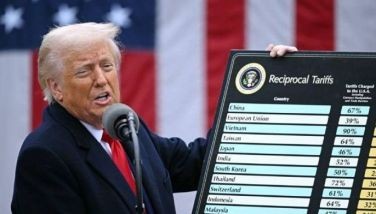Key sticking points in UN climate talks
PARIS — Some 180 countries have already presented plans to cut or rein in their climate-warming greenhouse gas emissions.
That's a huge step forward for the U.N. climate talks but a host of difficult issues remain to be resolved before a new climate agreement can be adopted in Paris.
Here are some of the most important ones:
The firewall
The previous climate treaty, the 1997 Kyoto Protocol, divided the world into developed and developing countries and only required the former to cut their greenhouse gas emissions.
The U.S., the European Union and other developed countries say this time all countries must chip in and that the rich-poor firewall is outdated anyway since it classifies countries like Qatar, the wealthiest country on Earth per capita, as developing.
Even though almost all countries are in practice moving into a new era by presenting their own emissions pledges, India and many others want the Paris agreement to state clearly that the developed countries have a bigger responsibility to fight global warming.
Expect the biggest fights in Paris to be around this issue, which may very well be the last one to get resolved.
Finance and technology
Even if the agreement required all countries to cut their emissions, many countries wouldn't be able to do so without help.
Developing countries need money and technology to make the switch to clean energy sources like solar and wind power. They are also asking for money to adapt to climate change, which would continue for decades even if emissions were to stop today.
The developed countries are willing to help but reluctant to make firm commitments. They also want to expand the pool of donors to include the most advanced developing countries like China — again challenging the firewall.
American hurdle
Coming into Paris many countries including the European Union are insisting on a legally binding agreement.
The U.S. has a problem with that because an international treaty imposing emissions limits on the U.S. isn't likely to be approved by the Republican-controlled Congress.
Negotiators are trying to find a compromise where parts of the deal area binding and others, such as the emissions targets, are not. That may allow President Barack Obama to approve the deal without going to Congress.
But those who want a strong deal are worried this would mean the agreement has no teeth. Others say the rest of the world can't be expected to adjust the agreement to the political situation in one country.
Long-term goal
Many countries want the deal to include a long-term goal that spells out what it is they are trying to accomplish.
How to spell that out has proven very difficult.
Big oil producers like Saudi Arabia don't want language that suggests fossil fuels have to be phased out.
The current draft of the agreement contains multiple options, including "decarbonization of the global economy" or achieving "climate neutrality" or "net zero emissions" by 2050 or later. That means no more emissions than the world can naturally absorb.
Loss and damage
Small island nations who are particularly vulnerable to climate change say there needs to be a mechanism in a Paris agreement that deals with climate impacts that they cannot fully adapt to, such as rising seas and more devastating storms.
This issue, called loss and damage, makes the U.S. and other wealthy countries uncomfortable because they worry it's going to pave the way for claims of compensation and liability from countries ravaged by climate-related disasters.
Expect a tussle in Paris between the small islands and the rich nations on how to reflect loss and damage in the Paris agreement, including whether to mention it all in the core agreement.
- Latest
- Trending






























